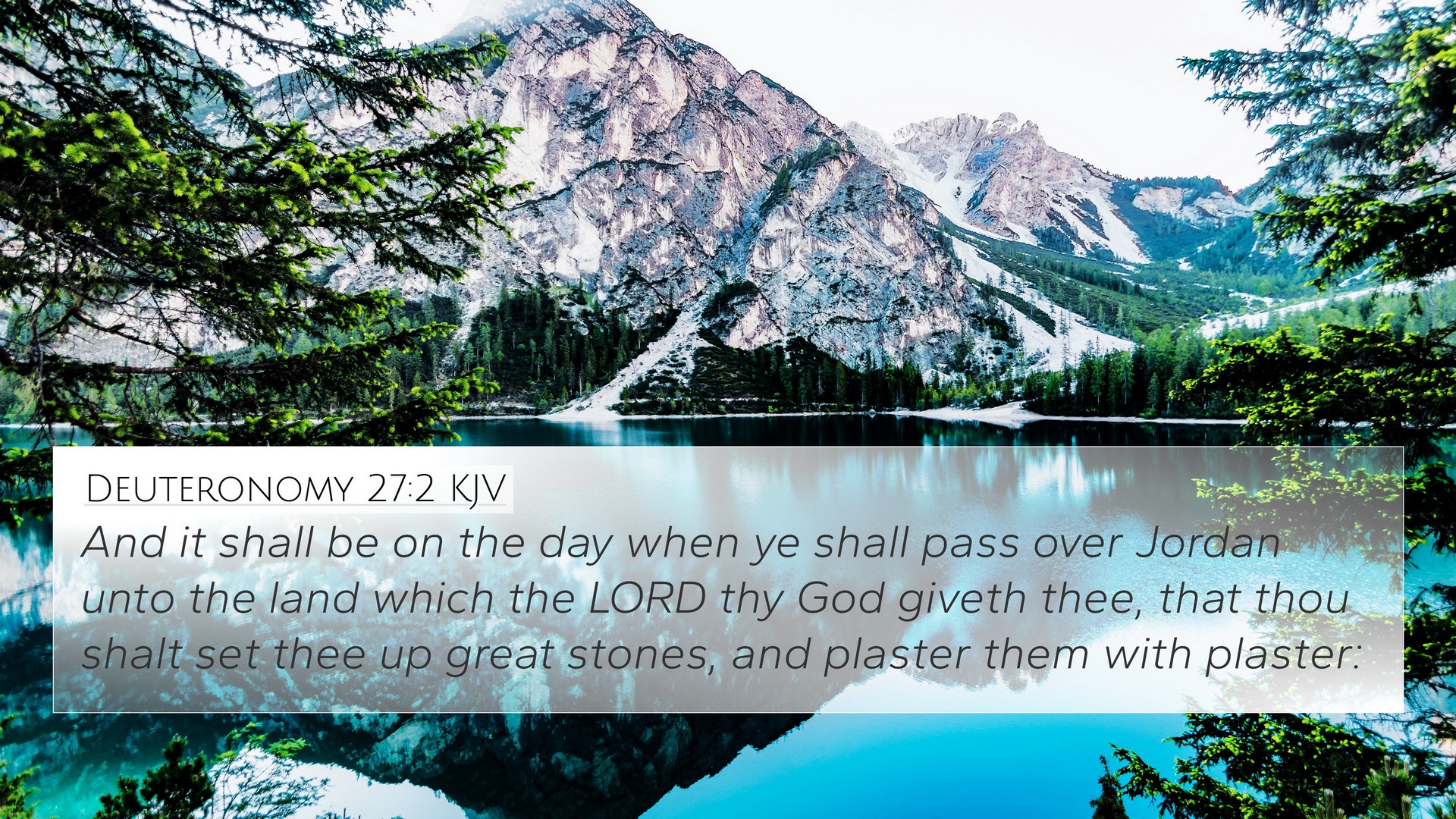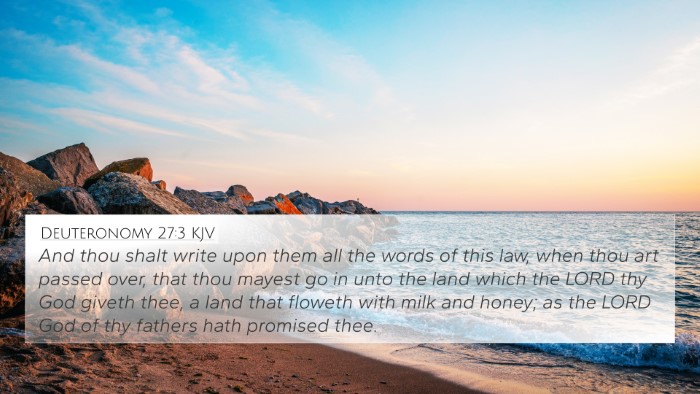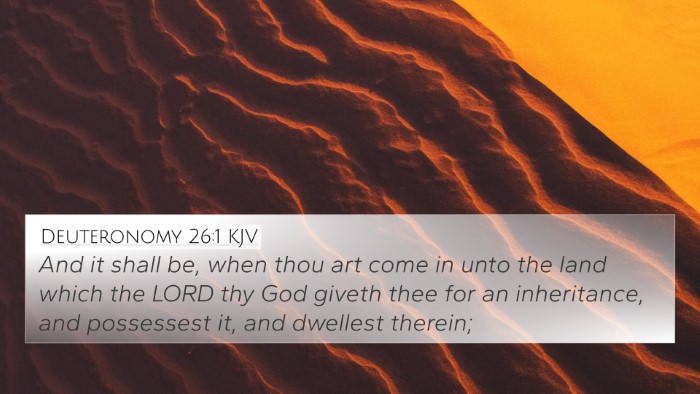Understanding Deuteronomy 27:2
Verse: "And it shall be, on the day when you cross over the Jordan to the land which the Lord your God is giving you, that you shall set up for yourselves great stones and coat them with lime." (Deuteronomy 27:2)
Meaning and Interpretation
The verse Deuteronomy 27:2 marks a significant moment in the history of the Israelites as they prepare to enter the Promised Land. Commentators agree that this directive was not merely about physical stones but symbolized a deeper spiritual act necessary for their covenantal relationship with God.
Historical Context
According to Matthew Henry, this verse emphasizes the importance of remembrance as the Israelites were commanded to write the Law on these stones. The act illustrated their commitment to God's commandments upon entering a land enriched with His blessings. Similarly, Adam Clarke remarks that the lime used signifies purity and preparation, pointing toward the establishment of a holy presence within the new territory.
Symbolism of the Stones
- Matthew Henry: The stones symbolize the permanence of God's law and the need for public acknowledgment of God’s covenant.
- Albert Barnes: Highlights that these stones would serve as a memorial, possibly serving to instruct future generations about their heritage and responsibilities.
- Adam Clarke: Notes the significance of the stones being coated with lime, signifying a transformative preparation for the Land.
Spiritual Application
Deuteronomy 27:2 serves as a reminder for contemporary believers to establish reminders of their faith and commitments to God. The use of stones can suggest that just as the Israelites built a visible altar of remembrance, believers today should carve their spiritual milestones into their lives and practices.
Cross-References for Deuteronomy 27:2
- Joshua 4:20-24: The setting up of stones in Gilgal, creating a physical reminder of God’s faithfulness.
- Romans 10:4: Christ as the culmination of the Law highlights the importance of a new understanding and obedience.
- Psalm 78:4-7: A reminder of the significance of teaching God’s laws to future generations.
- Exodus 24:4: Moses wrote down all the words of the Lord, establishing a covenant with the people.
- 1 Peter 2:5: Believers as "living stones" being built into a spiritual house signifies the continuity of this theme.
- Galatians 3:24: The purpose of the Law was to lead us to Christ, reflecting on the transitional aspect of the covenant.
- Deuteronomy 6:9: The necessity of writing God's commandments on doorframes signifies constant remembrance.
Concluding Thoughts
The instructions in Deuteronomy 27:2 about setting up great stones serves to link the covenantal themes throughout Scripture, where physical reminders encourage spiritual commitments. Through reflective practices today, believers can draw connections between Old Testament principles and New Testament applications, finding relevance and depth in their faith journey.
Further Study and Reflection
For deeper understanding, readers may consider the implications of creating their own 'stones of remembrance' in their spiritual lives. This may involve journaling, establishing family traditions, or communal worship experiences that honor God’s continual covenant with His people.
Tools for Bible Cross-Referencing
Utilizing tools such as a Bible concordance, a Bible cross-reference guide, or a comprehensive Bible cross-reference system can enhance the study of inter-Biblical dialogues and thematic connections. Exploring websites or physical guides dedicated to scriptural cross-referencing can facilitate a deeper understanding of how scripture informs scripture.













